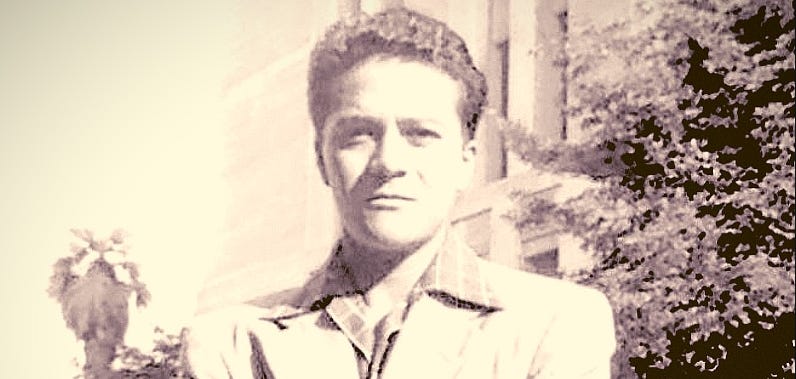Carlos Castaneda was a controversial author and anthropologist known for his series of books on shamanism and mysticism, particularly those centered around the teachings of a Yaqui Indian shaman named Don Juan Matus. His life and work have been the subject of both admiration and skepticism.
Here is a detailed history of Carlos Castaneda:
Early Life:
1. Born as Carlos Arana Castaneda on December 25, 1925, in Cajamarca, Peru. His parents were Cesar Arana Burungaray and Susana Castaneda Navoa.
2. Castaneda grew up in Peru and later moved to the United States to pursue higher education. He attended the University of California, Los Angeles (UCLA), where he began studying anthropology in the early 1960s.
3. In 1960, while still a student at UCLA, Castaneda claimed to have met Don Juan Matus, a Yaqui Indian shaman and healer, while doing research on hallucinogenic plants in Arizona and Mexico. Don Juan became the central figure in Castaneda's writings.
The Teachings of Don Juan:
4. In 1968, Castaneda published his first book, "The Teachings of Don Juan: A Yaqui Way of Knowledge." This book chronicled his experiences with Don Juan and their exploration of shamanic practices, including the use of psychotropic plants such as peyote and datura.
5. "The Teachings of Don Juan" gained immediate attention and became a bestseller. It introduced many readers to the concept of altered states of consciousness and shamanic practices.
6. Over the next 25 years, Castaneda wrote a series of books, including "A Separate Reality," "Journey to Ixtlan," "Tales of Power," "The Second Ring of Power," "The Eagle's Gift," "The Fire From Within," "The Power of Silence," and "The Art of Dreaming." These books continued to explore his experiences with Don Juan and his journey into the world of shamanism.
Controversy and Skepticism:
7. Throughout his career, Castaneda's work faced considerable criticism and skepticism. Some anthropologists questioned the authenticity of his accounts, arguing that they were more a work of fiction than ethnographic research.
8. Critics also raised concerns about Castaneda's portrayal of indigenous cultures and the ethical implications of his use of hallucinogenic substances during his research.
9. Castaneda himself was known for being reclusive and secretive, which added to the mystery surrounding his work.
Later Life and Legacy:
10. Carlos Castaneda maintained a relatively low profile in his later years, rarely appearing in public or granting interviews.
11. He passed away on April 27, 1998, in Los Angeles, California, under circumstances that remain somewhat unclear.
12. Despite the controversy surrounding his work, Castaneda's books continue to have a following among those interested in spirituality, mysticism, and shamanism. His ideas have influenced New Age and self-help movements.
13. Some readers see Castaneda's work as a valuable exploration of consciousness and personal transformation, while others view it as a problematic appropriation of indigenous knowledge and culture.
In conclusion, Carlos Castaneda's life and work are marked by controversy and intrigue. While his books have had a significant impact on the exploration of consciousness and spirituality, they also remain a subject of debate and skepticism within the fields of anthropology and indigenous studies. Castaneda's legacy continues to be a complex and multifaceted one, reflecting the enduring fascination with his teachings and experiences with Don Juan Matus.

